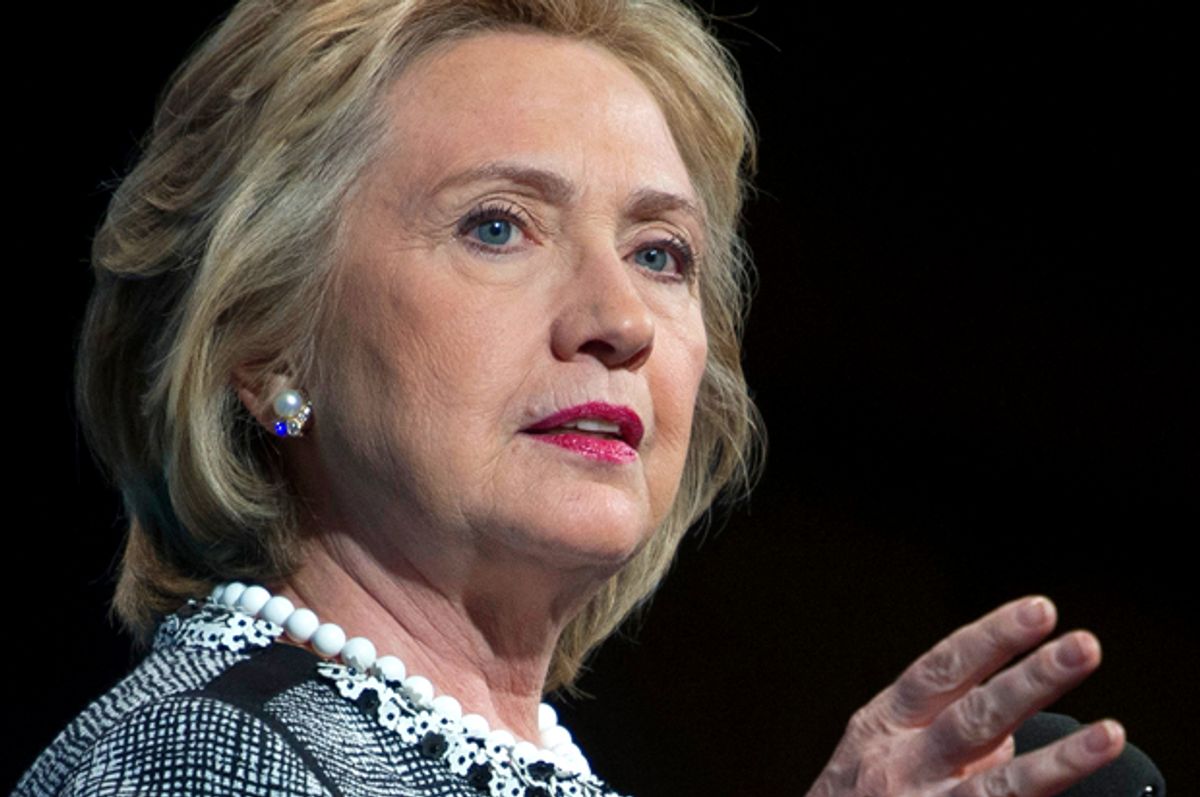The Bill, Hillary, & Chelsea Clinton Foundation does a lot of good work. It’s tempting to view anything with the word “Clinton” attached to it as nothing more than a political enterprise, but the Clinton Foundation has been a force for good in the world by hooking up charitable causes with motivated funders. That said, it’s ridiculous that the Clinton Foundation is accepting donations from foreign governments again. It’s ridiculous because Hillary Clinton’s would-be presidential candidacy leaves no choice but the view the foundation as a political enterprise.
The Clintons should have anticipated that this would be a problem. The foundation agreed to stop taking money from foreign governments in 2009 when Hillary became secretary of state – no one wanted the appearance of a foreign government influencing a high-level government official. When Hillary left the office, the foundation resumed the practice and has taken in considerable sums since then. In a statement defending the donations, the Clinton Foundation boasted of its donor integrity and transparency in disclosing its funders. Credit where it’s due – the Clinton Foundation is more transparent about where its money comes from than your average non-profit. But that’s beside the point.
Clinton is not “officially” a candidate for the presidency, so there aren’t any rules or ethical boundaries for her to “officially” cross. But you can’t pretend that there’s a bright line separating Clinton the philanthropist and Clinton the would-be president. That would require overlooking all the non-official steps she’s taking towards running for president, like the fact that she’s poaching top-level staffers from the White House to run the campaign that doesn’t yet exist. One also has to keep in mind that there’s a huge amount of overlap between the foundation’s donor base and the people pouring money into the Clinton political machine. It’s gray area as far as the eye can see.
The fact that foundation already once agreed to shut itself off from donations from foreign governments to avoid the appearance of improper influence on Hillary’s political life just confirms that they know how fishy this business can be. Knowing that, and assuming Clinton does run, the fact that they’ve reopened the doors to foreign governments makes it look like the Clinton Foundation is taking advantage of that ethical gray area while they can, raking in as much money as possible before the door must be closed again. There’s also the unseemly question of how much Hillary’s status as a presumed candidate serves to lure in and incentivize donors. Again, they’re not breaking any laws or violating any codes; it just looks really bad, which is something presidential campaigns usually strive to avoid at every possible juncture.
And really, it’s a problem that would exist even if the Clinton Foundation had kept the ban on government donations in place. The foundation has a large pool of non-governmental donors – the rich people around the world who sink vast sums into the Clintons’ philanthropic endeavors. The New Yorker’s John Cassidy wrote last week about the international jet-set types who sent donations to the Clinton Foundation via a Switzerland-based division of HSBC that is caught up in a tax scandal. One of them, a British business tycoon, wired $1 million to the foundation after Bill Clinton made an appearance at a charity ball his company threw in Russia. In isolation that story would be kinda fishy, but nothing to be too worked up over. Hillary’s political ambitions, however, give it a whole new layer of impropriety.
Part of the problem is that success in global philanthropy, like success in politics, requires flagrantly obscene amounts of money. To get that money, you have to go sidling up to the mega-rich, and they’ll usually expect something in return for their largesse – preferential treatment, access to the candidate, whatever. The Washington Examiner this week reported on an email that Republican whale Foster Friess sent to Rand Paul after they had lunch together, in which Friess scolded the senator for his opposition to sending U.S. troops to the Middle East. Friess made a point of telling Paul that he had cc’ed several other senator on the email so they’d know how very disappointed he was. This is how wealthy donors behave: they make big donations and then feel the need to start a chain email with your Senate pals because dagnabbit they have something to say and you all need to hear it. And all these senators kiss this ornery coot’s ass because of how many zeroes he can write on a check. Every candidate for office has to deal with this to some extent, but Clinton is making the problem worse by existing both as a candidate and philanthropist and exposing herself to as many potential influencers as possible.
Where Republicans have the advantage is that they generally don’t care if they’re seen sucking up to the wealthy – it’s a point of pride for most to be so closely identified with those good and noble job creators. For someone like Hillary, who will want to run as a champion of the working class and an enemy of income inequality, a balance has to be struck. She needs all those rich folks, but can’t be seen as being in their pockets. That requires a certain amount of delicacy and a recognition of ethical concerns that, at the moment, is not reflected in the Clinton Foundation’s fundraising tactics.

Shares